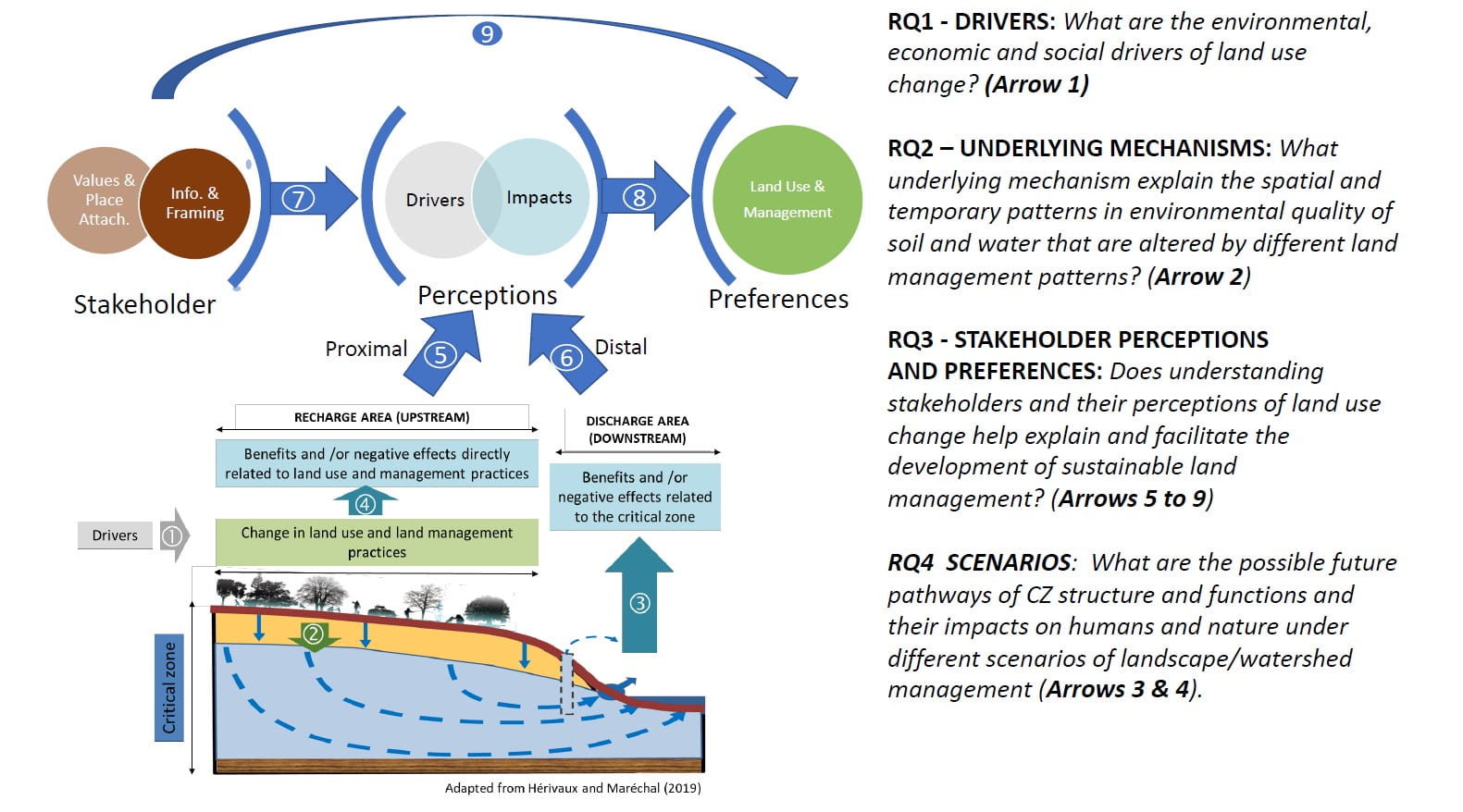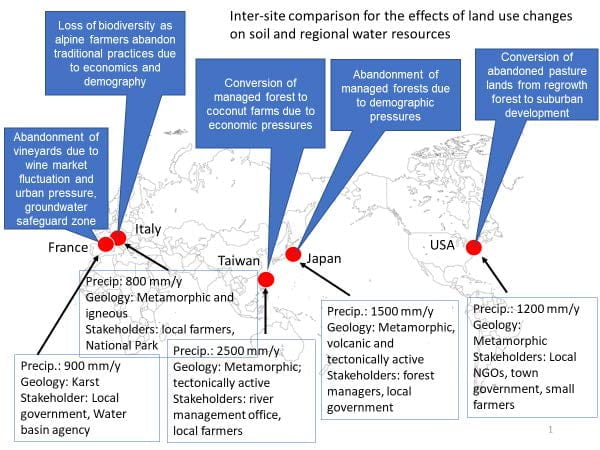Overview
The overarching goal of the ABRESO project (Abandonment and rebound: Societal views on landscape and land-use change and their impacts on water and soils) is to develop a global transdisciplinary platform; envisioned as a network of people, sites, tools, and ideas, for understanding the impacts of land abandonment on sustainability of soil and water resources. Land abandonment and subsequent land use or land cover change can have profound implications for water resources, as the changing fabric of the Critical Zone (CZ) dictates changes in infiltration, runoff, and the delivery of sediment and nitrogen to groundwater and surface waters. Changing climate, changing demographics, and changing human needs and perceptions are all potential drivers of land abandonment. We meld the natural and social sciences to address the evolution of soil and water resources in response to these drivers, using advanced techniques (concentration-discharge relations; multi-level modeling of stakeholder perceptions and preferences) in order to understand the ways in which the biophysical and societal landscapes are linked to water resources and environmental decision making.
The general theme of this project is to determine actual and perceived effects of land use transitions on CZ function in the context of land abandonment (Figure 1). Management and social-cultural changes create transitions, altering watershed properties (soil and water quality, and related ecosystem services) in a manner that stakeholders may not understand or appreciate. Yet changes affect stakeholders, what they want to preserve or change, and their views of land management strategies.
Figure 1: Conceptual scheme of the relation between foundational drivers of land abandonment and land development, their physical effects and the perception of such changes (modified in part from Hérivaux and Maréchal 2019).
The specific goals of the project, each aligned with a research question, are to
- describe social and natural forcing functions that drive land abandonment and subsequent land use change;
- quantify impacts on water quality due to this abandonment;
- identify gaps in understanding of actual impacts and those perceived by stakeholders such that stakeholder reactions to land use change can be better understood and modeled; and
- use a modeling framework to assess sustainability of various land use and land abandonment scenarios in the context of the Intergovernmental Science-Policy Platform on Biodiversity and Ecosystem Services (IPBES).
The project team is diverse and highly accomplished, ranging from an environmental psychologist to an isotope geochemist to a landscape ecologist. Together the project leaders have selected 25 geographically diverse watersheds from 5 culturally diverse countries with broad variation in climate, geology, watershed size, human density, drivers of land use and management, and stakeholders (Figure 2). Our study regions include sites in France, Italy, Japan, Taiwan, and the USA, with research catchments that are large enough to incorporate a mosaic of land uses and management approaches including abandonment and redevelopment, while small enough to allow detailed assessment of biophysical conditions in different watersheds and regional variation in stakeholder views. Most of our study watersheds already have extensive biophysical data to characterize the CZ, with data sets spanning decades.
Figure 2: Characteristics of Critical Zones and drivers of land abandonment and redevelopment in the study regions of participating countries.
References
Hérivaux, C., and Maréchal, J. (2019). Prise en compte des services dépendants des aquifères dans les démarches d’évaluation des services écosystémiques (Considering aquiferdependent services in ecosystem service valuation approaches). Technical report BRGM/RP-68929-FR. Project funded by the French Biodiversity Agency, ID : 10670/1.mgx7ln



